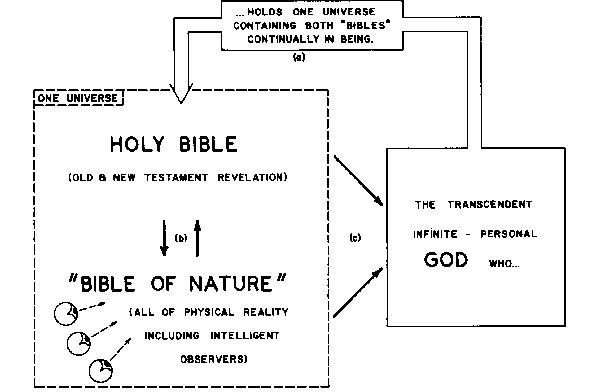Palmerston's free advice on free trade
Am starting here late today after lots of Christmassy and holiday running around, sorting phones, delivering other people's late presents, gathering Christmas leftovers for the next impoverished week debriefing and complaining about the co-op, pursuing happiness, chatting about religion, and singing grand old Rolling Stones songs along with the car radio.
I'm not far from the end of an 800 pager on the life of Lord Palmerston, published around 1970. How's that for unfashionable. Fact is, I'd not heard of him either before I started reading, but he was without doubt one of the powerhouses of Brit politics in the nineteenth century, that's to say, during a period when Britain could lay claim to being the most powerful nation on the globe.
Palmerston was Britain's Foreign Secretary for years from 1830, and dominated its foreign policy through to the 1860s, by which time he was Prime Minister. In spite of being a lord he was an able and efficient administrator, energetic and pragmatic. Of course being a lord was almost de rigeur in the upper reaches of politics in those days, viz Lord Melbourne, Lord John Russell, the Duke of Wellington, the Earl of Aberdeen and Lord Derby, to name five of Palmerston's Prime Ministerial predecessors. These were the born-to-rule types, and commoners would've been perceived as out of their depth among such heights, ho ho.
However, unlike most of the titled gents hanging around parliament in this era, Palmerston, though a staunch upholder of his class, wasn't a full-on conservative. Certainly he began his career as such, but over time he moved towards the Whig side of politics, and while I don't find him an entirely sympathetic character, he's sympathetic enough, especially when compared to the other lords on offer, not to mention the various European despots he was dealing with. Above all I'm fascinated by his energy and his unfailing optimism. I'd always like more of that.
What I'd like to focus on here though is a passage I was struck by, which has plenty of resonances today.
Palmerston was a convinced free-trader, and during the Irish potato famine he approved the export of corn by Irish merchants, in the face of much opposition.
Here's a passage from the biography [by Jasper Ridley]:
In a despatch to Lord Cowley, the Ambassador in Constantinople, on 3 November 1847, Palmerston explained to the Turkish Government how wrong they had been when they banned the export of corn from the island of Lemnos during the food shortage there in September. If there was a food shortage in a country, the price of corn there would rise. This in itself would prevent merchants from wishing to export the corn to other countries where the price of corn was lower; on the contrary, it would lead merchants to send corn from abroad to the hungry country where they could sell it at a high profit, which would cause the price of corn to fall there; and soon the scarcity would be replaced by such a glut of corn that some merchants would be unable to sell their corn. They would therefore wish to export it again and sell it in another market; but if the export of corn was banned, they would not be able to do so, and the shrewd merchants, realizing this, would not risk sending corn to the hungry country, and the famine would continue. Palmerston told the Turkish Government that it was for this reason that the British Government had always refused, at the height of the Irish famine, to ban the export of corn from Ireland, and he urged the Turkish Government to follow suit in Lemnos. But the Turks were not converted to a belief in laissez-faire economics by Palmerston's exposition of the infallible operation of the law of supply and demand.So here's a test question: what, if anything, is wrong with Palmerston's argument here?
I'm no economist, so it's easy to start with the observation that such a dry economic approach to such a tragic situation as famine, or even food shortage, seems to lack something in human fellow-feeling. It's a bit like the kind of dry, chess-like geopolitical game-playing of a Kissinger, making more or less theoretical decisions [though with massive practical implications] regardless of the actual suffering of ordinary people on the ground.
But even the economics sounds wrong. An essential commodity becomes very scarce on an island, causing great hardship. Now, the merchants in possession of the commodity [and presumably they wouldn't have much of it] are at least theoretically able to sell that commodity on the island at a higher rate – always assuming that the inhabitants of the island are able to afford such a higher rate, considering that the scarcity wasn't predicted or prepared for. The argument goes that they would rather do this than export the commodity at less profit. Of course there would be all sorts of factors influencing their decisions about whether or not to export, but let's assume that they make every effort to sell their precious commodity on the island before merchants abroad pour their supplies of the commodity into the island, hoping too to benefit from the higher prices caused by the scarcity. The resultant glut would mean that many merchants, whether local or overseas, wouldn't be able to sell their product [presumably this would particularly hit those merchants who went to the trouble and expense of having the commodity shipped to the island]. But if the government banned exports, the merchants who had imported the commodity would not be able to export it when necessary, and, knowing this, would not take the risk of importing it in the first place, so the famine would continue. This sounds wrong not just because it's too neat, but because there are other considerations – non-economic on the face of it, but ultimately economic – that the merchants must face, such as public perceptions around exporting your product [or for that matter selling it to your neighbours at inflated prices] when your neighbours are starving for lack of it. There would be an expectation that merchants should help out [assisted by governments] by making their product available to the needy, first and foremost. Market forces might finally adjust to sort out the situation as Palmerston argues, but in the meantime people need to be protected and supported.
So the Turkish government was probably right to ignore Palmerston's lecture. A purely laissez-faire system is particularly brutal to the vulnerable people at the bottom of the heap.
Note the oh so gentle irony of Ridley's treatment of the good Lord, especially in the last couple of sentences of the above quote. One of the things that makes the book so readable.
Labels: politics






